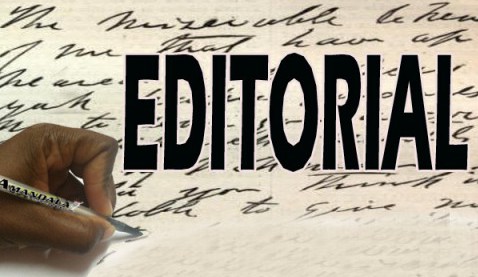“The song, Rule Britannia, was written by the Scot, James Thompson, in 1740. It puts so-called European Enlightenment into its true context of shameful arrogance and interest in self that mocks. We enslave others; they don’t enslave us. In addition, the great hypocrisy of British justice during slavery is summarized in the self-congratulating court cases of the British slaves, Somerset and Joseph Knight. Somerset was set free by Lord Mansfield in London in 1772. Joseph Knight was set free in Scotland in 1778. These judgments made it clear that whilst slavery was not permitted in England and Scotland, it was permitted in the colonies of the West Indies where English and Scottish people ran rampant as slavers.”
– pg. 44, THE ENLIGHTENMENT ABOLISHED, Geoff Palmer, Henry Publishing, Midlothian, Scotland, 2007
There are many good and honest Belizeans who will consider any criticism of Centenary as an attack upon their heritage in the Settlement of Belize. We understand this reaction, and we are sympathetic to it. The reality is, nonetheless, that in 2015 Centenary has been transformed from celebrations couched in a patriotic framework to almost a whole month of predominantly hedonistic events driven by the tourism powerhouse of the Belizean economy.
Until the year 1964, Belize was British Honduras, a total British colony. After the settlement had become a Crown Colony, there had been the rebellions of 1894, 1919, 1934, and finally there came the extended anti-colonial push of the People’s United Party (PUP). No matter, until 1964, patriotism in British Honduras definitely meant allegiance to the exploitative rule of British colonialism.
It is possible to identify certain families in Belize which were and generally remain, Anglophile. These families were privileged, prestigious and successful during British colonial rule. Most of these families were various hues of brown, but a few were black, black enough. Before 1964, British Honduras was not an incorrigibly divided society where the majority Creole population was concerned. In the capital city, Belize, where the Creoles dominated, some friction between the colonialism–successful families, on the one hand, and black, working class families at the base of colonialism’s socio-economic pyramid on the other, did exist, and that friction became politically institutionalized when the PUP, representing mostly black, working class families, was established in 1950, and was countered by the formation of the National Party (NP) in 1951, the NP being supported by the privileged, prestigious and successful colonial families. Still, the fact that there were family relationships between the Creoles at the top of the NP, and the Creoles at the bottom of the PUP, kept the politics of the capital relatively civil.
Outside of the capital, in the Corozal and Orange Walk Districts dominated by Mestizo and Maya families, and in the Stann Creek District, where Caribs (now Garifuna) families were the majority, “patriotism” during colonialism involved a few individuals who probably would have to be considered opportunistic. These three Districts, except for the elitist Pomona Valley enclave, suffered under colonialism. The Toledo District, comprised mostly of Caribs, Maya, and East Indians, with one dominant Creole family, was indeed “forgotten” during British colonialism, and the everyday linkages of Toledo people were with nearby Guatemalan communities. Toledo was cut off from the rest of British Honduras.
The “patriotism” of the capital city was a colonial patriotism expressed in speeches of allegiance to the Governor and to the King of England (in the years before Queen Elizabeth II was crowned in 1953.) Centenary was a colonial invention and institution. Enough crumbs fell off the Centenary table during September to create some temporary good will at the base of the socio-economic pyramid. But, jump high or jump low, British colonialism was an exploitative, oppressive system here, and the majority of our people, especially in the Districts, labored and suffered.
Centenary patriotism was a colonial patriotism. Centenary patriotism celebrated the privilege, prestige, and success of a few native families, while that Centenary patriotism was bowing abjectly in front of the Governor and the King/Queen of England.
In 2015, with Guatemala breathing fire on our borders, Creole Belizeans need to put all this Centenary game in the proper perspective. Creoles have been brainwashed with Centenary for so long that it is impossible for our people to think clearly when the music puts the Centenary spell on us. We automatically start marching and dancing and singing. Yeah, and at the end of September ask yourself this question: who’s broke and who has the money in pocket? It happens every time.
We’re suffering from that good old slave mentality, that good old colonial mentality. This was exactly what Centenary was designed to reinforce in our psyche. Centenary was not designed to liberate us from poverty, ignorance and disease. Centenary was concocted to make us happy with a colonial status quo which floated daily feces through the middle of the capital city to remind us of our own degradation.
They say we all gotta have fun sometime. All work and no play makes Jack a dull boy. Thus, it is said. What we have argued in this essay is that Centenary patriotism was a colonial patriotism. That colonial patriotism was so embedded that when Mr. Price’s PUP tried to replace Centenary patriotism with a nationalistic vision, it came off like party politics. That was then. This is now. We’ve had our change of government, and we have a better sense of our own nationhood. We should be more mature. You can march and dance and sing all the Centenary you want in the late night hours of fun times this September. But, when Belizeans march in our streets in the blazing heat of the sun, let us remember Danny. If we do not create a freedom patriotism for ourselves in 2015, Belize will be dismembered. We will fall to Guatemala. Not good.
Power to the people. Remember Danny. Fight for Belize.

